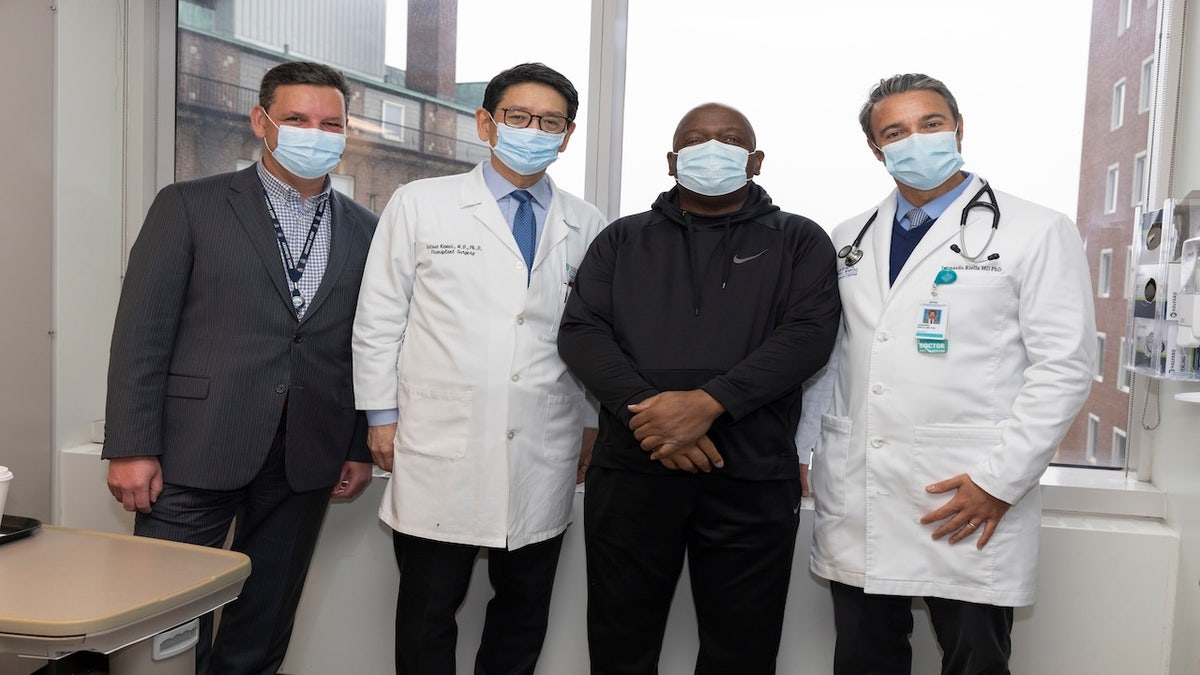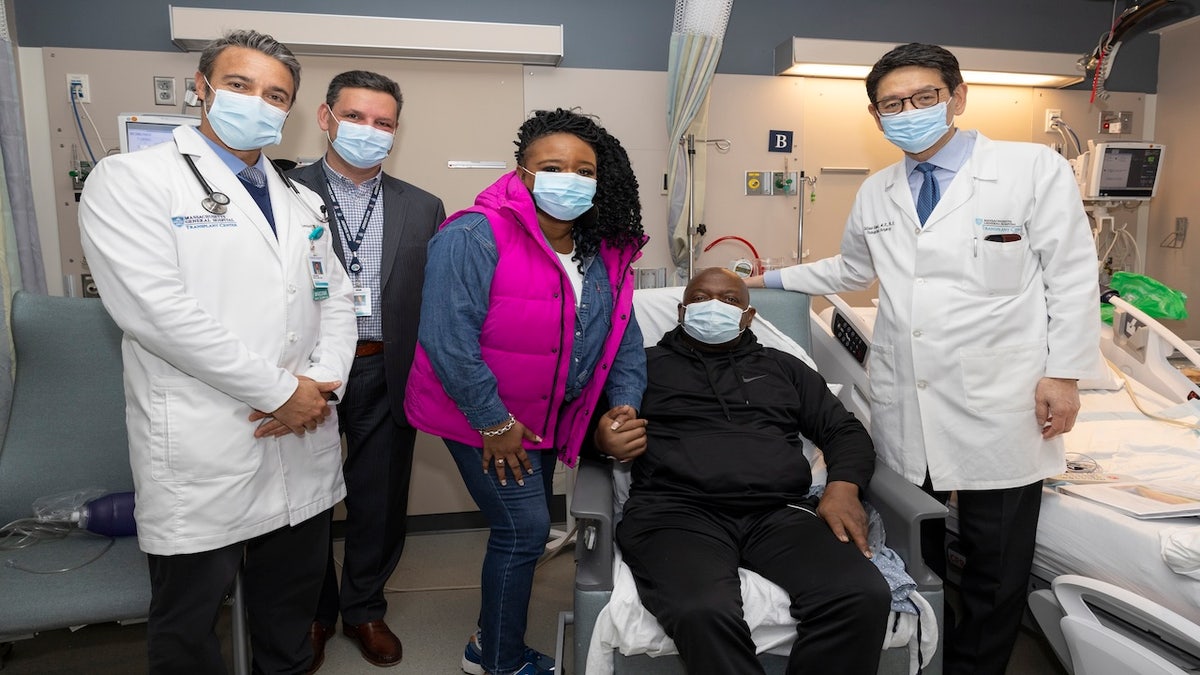Fox News Flash top headlines for May 11
Fox News Flash top headlines are here. Check out what's clicking on Foxnews.com.
A Massachusetts man has died nearly two months after he made history as the first recipient of a genetically modified pig kidney transplant, his family and the hospital that performed the procedure announced Saturday.
Richard Slayman, 62, had the transplant at Massachusetts General Hospital in March, when surgeons predicted the pig kidney would last for at least two years.
The transplant team at the hospital said in a statement it was deeply saddened by Slayman's death and offered condolences to his family. The hospital said there was no indication he died because of the transplant.
Slayman was the first living person to undergo the procedure, but pig kidneys had previously been temporarily transplanted into brain-dead donors. Two men received heart transplants from pigs, but both died within months.

Richard Slayman (second from right) died nearly two months after he made history as the first recipient of a genetically modified pig kidney transplant. (Courtesy of Michelle Rose/Massachusetts General Hospital)
After having a kidney transplant at the hospital in 2018, Slayman had to go back on dialysis last year because it showed signs of failure. Then, after dialysis complications came up and required frequent procedures, his doctors suggested a pig kidney transplant.
Slayman's family thanked his doctors for extending his life.
"Their enormous efforts leading the xenotransplant gave our family seven more weeks with Rick, and our memories made during that time will remain in our minds and hearts," the family said in a statement.
The family said Slayman underwent the surgery, in part, to provide hope for the thousands of people who also require a transplant to live.
MASSACHUSETTS MAN RECEIVES SUCCESSFUL PIG KIDNEY TRANSPLANT: 'UNCHARTED TERRITORY'

Richard Slayman with (left to right) Dr. Leo Riella, Medical Director of Kidney Transplantation, Dr. Nahel Elias, Interim Chief, Division of Transplant Surgery, his partner, Faren, and Dr. Tatsuo Kawai, Director, Legorreta Center for Clinical Transplant Tolerance (Courtesy of Michelle Rose/Massachusetts General Hospital)
CLICK HERE TO GET THE FOX NEWS APP
"Rick accomplished that goal and his hope and optimism will endure forever," the family said.
Xenotransplantation refers to healing human patients with cells, tissues or organs from animals. These attempts have long been unsuccessful because the human immune system immediately destroys foreign animal tissue. Recent attempts have included pigs that have been modified, so their organs more closely resemble those of a human.
More than 100,000 people are on the national waiting list for a transplant, with most of them being kidney patients. Thousands of people die every year before they receive a transplant.
The Associated Press contributed to this report.












































